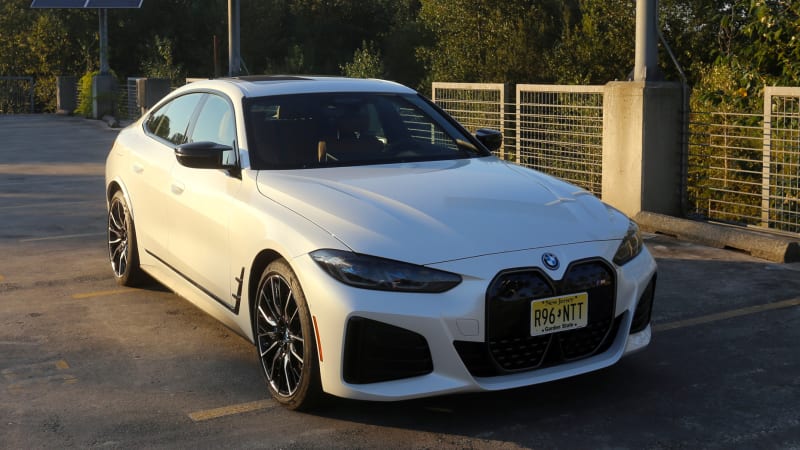Top 8 premium electric cars ranked by J.D. Power in 2024

J.D. Power recently released its 2024 U.S. Electric Vehicle Experience (EVX) Study, finding that owners are increasingly dissatisfied with the charging experience and that buyers still value cost and quality as they transition to EVs. According to J.D. Power, “the overall EVX ownership index score measures electric vehicle owner satisfaction” and “includes 10 factors (in alphabetical order): accuracy of stated battery range; availability of public charging stations; battery range; cost of ownership; driving enjoyment; ease of charging at home; interior and exterior styling; safety and technology features; service experience; and vehicle quality and reliability.”
The BMW i4 took the overall highest score among premium brands, outscoring the Rivian R1T, Rivian R1S, the Tesla Model 3, and the Tesla Model Y with a score of 800. J.D. Power’s premium vehicles category only contains eight models, though that’s up from five last year. And there are lots of exciting new electric cars coming within the next couple of years to look forward to.
Top eight premium electric vehicles ranked by J.D. Power
BMW i4: 800
Rivian R1T: 789
Rivian R1S: 778
Tesla Model 3:756
Tesla Model Y: 752
Volvo C40 Recharge: 730
Volvo XC40 Recharge: 719
Audi Q4 e-tron: 680
In addition to individual models, the company ranked the most common issues with electric vehicles. Its executive director of EV practice, Brent Gruber, said, “Many products are hitting the mark and resonating with shoppers but, at the same time, the decline in satisfaction with public charging availability should serve as a warning because concern about access to public charging is a key reason many buyers currently reject BEVs. For EVs to reach their full potential, this issue needs to be resolved.
The study also found that first-time EV owners are less committed to electrics than those who’ve owned more than one. Almost half said they would consider another plug-in vehicle, while 39 percent said they’d consider a hybrid or gas vehicle for their next purchase.
At the same time, J.D. Power said that PHEV owners are often disappointed with their operating expenses. It noted that PHEVs have all the costs associated with owning a gas vehicle without reaping the added benefits of their electrified powertrains. It’s worth noting that PHEVs must be charged regularly because they often fail to deliver strong fuel economy with their gas engines alone.



